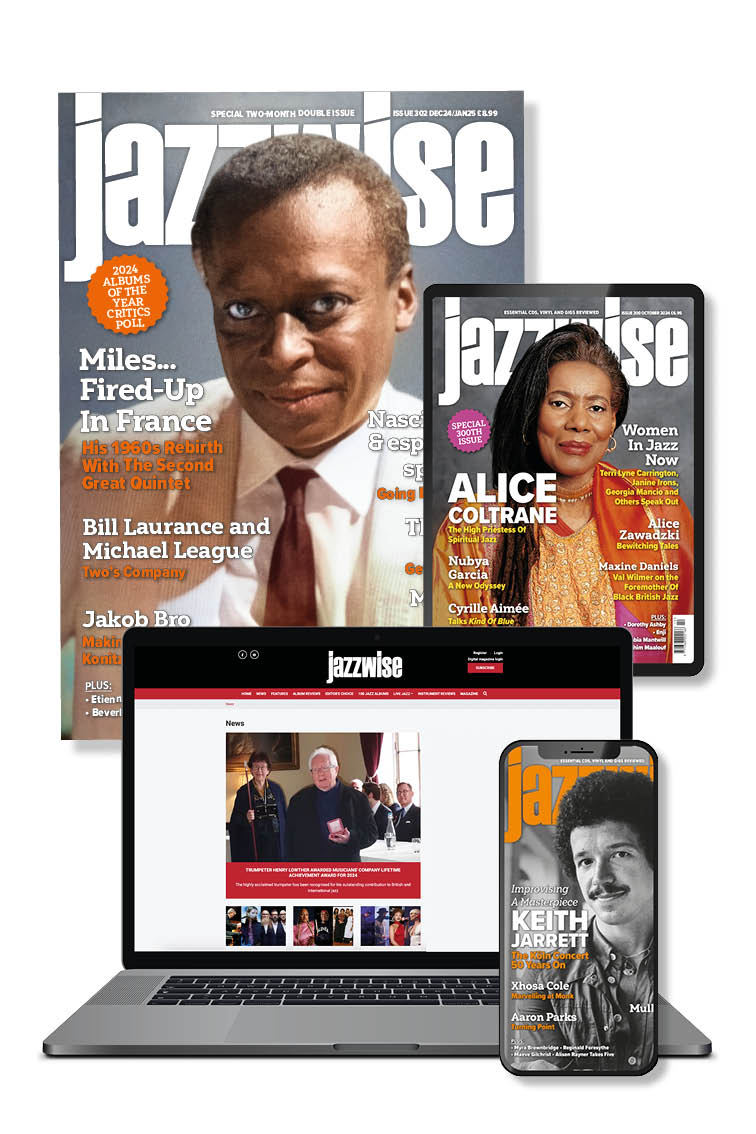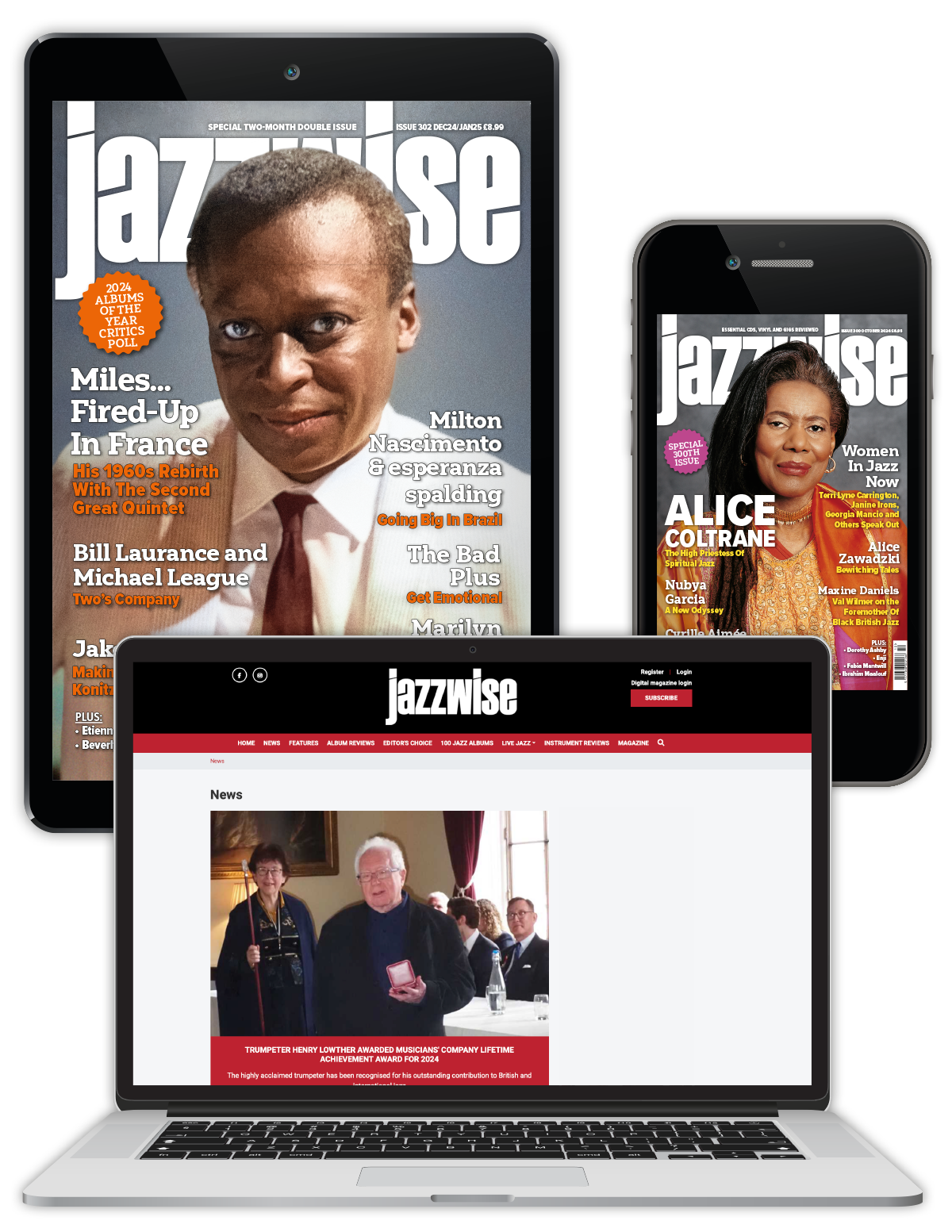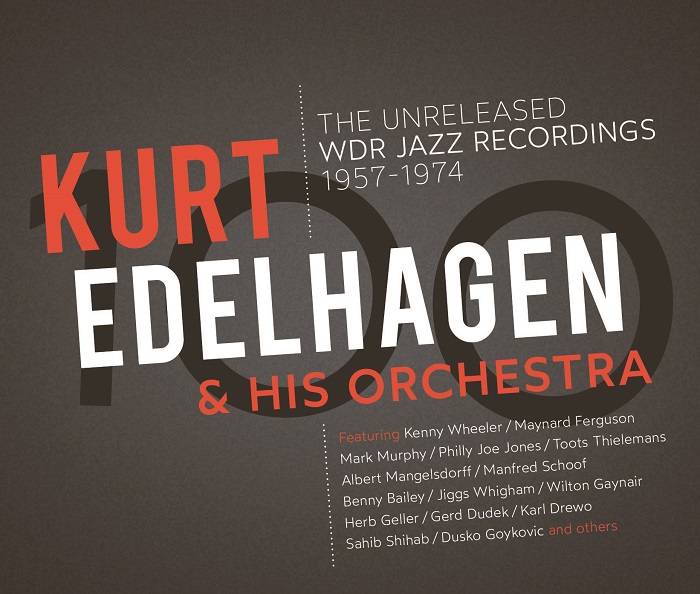Kurt Edelhagen & His Orchestra: The Unreleased WDR Recordings 1957-1974
Author: Stuart Nicholson
View record and artist detailsRecord and Artist Details
Musicians: |
Jimmy Deuchar |
Label: |
Jazzllne Classics/WDR The Cologne Broadcasts |
Magazine Review Date: |
May/2021 |
Media Format: |
3 CD |
Catalogue Number: |
D77091 |
RecordDate: |
Rec. 1957-1974. |
Kurt Edelhagen was a major force in German jazz, his orchestra home to an all-star ensemble that included top US, German and European jazz musicians. Originally inspired by the Stan Kenton Orchestra – the Kenton of the Bill Holman period – in terms of musicianship, execution and energy was the equal of many of the leading American big bands. With the slow but sure influx of top European jazz musicians the emphasis shifted to a more ‘European’ sound, built around European soloists. This gradual transition evolves through CDs Two and Three of this exemplary three-CD set, with guests such as Kenny Wheeler, Gordon Beck and Albert Mangelsdorff featuring on CD Three. It also gave Francy Boland the opportunity to contribute arrangements, so giving him solid experience to build on with the Francy Boland/Kenny Clarke Big Band – also associated with the WDR studios in Cologne.
Dr Bernd Hoffman was Head of Jazz at WDR until his retirement three years ago. He has written extensively on Edelhagen's music and complied and produced this compilation, contributing the liner notes.Stuart Nicholsonspoke to him.
Edelhagen will not be known to the majority of UK jazz fans. Can you explain his significance in German and European jazz?
BH: Edelhagen built up his international big band at Westdeutscher Rundfunk (WDR) from 1957 onwards, presenting the Orchestra on radio and television, and toured nearby foreign countries. Their trip to the USSR (1964) and the enthusiastic reactions in Russia helped make the band ‘famous’ – he also toured East Germany, USSR, Czechoslovakia and several Arab countries in the 1960s.
What is striking about many of the tracks on your excellent compilation is the development of a big band sound that began in the American tradition, but evolved into a distinctive ‘European sound’. Can you explain a little about this evolution?
BH: The band's history has several phases, with important US soloists arriving in the first half of the 1960s. While the original orientation was the American model' of Stan Kenton, arrangers such as Francy Boland, Derek Humble and Jimmy Deuchar, among others, changed the sound quite considerably and a different big band perspective emerged: the European members of the orchestra composed, arranged and improvised new repertoire for the ensemble. Thus, within a few years, the sound of the orchestra was transformed – a large number of European soloists brought important impulses from individual European countries.
What is striking is the number of guests that Edelhagen presented with his orchestra over the years – American stars, European stars and UK stars. Yet these disparate personalities created a distinctive big band sound – how do you explain it?
BH: The daily rehearsals are described by many musicians as exhausting, especially in combination with the direct reproduction of what is rehearsed in recordings for radio. The jazz orchestra becomes known for this discipline and presents itself on tours abroad.
West German radio stations played a vital role in the development of German jazz – and you speak in the liner notes of Edelhagen's huge recorded archive, can you talk about this?
BH: Individual radio stations founded jazz orchestras as early as the 1950s, all with varying repertoires. This is demonstrated by the Edelhagen tapes, a musical treasure hidden for decades in the “catacombs” of the Cologne broadcasting centre.

Jazzwise Full Club
- Latest print and digital issues
- Digital archive since 1997
- Download tracks from bonus compilation albums throughout the year
- Reviews Database access
From £9.08 / month
Subscribe
Jazzwise Digital Club
- Latest digital issues
- Digital archive since 1997
- Download tracks from bonus compilation albums during the year
- Reviews Database access

